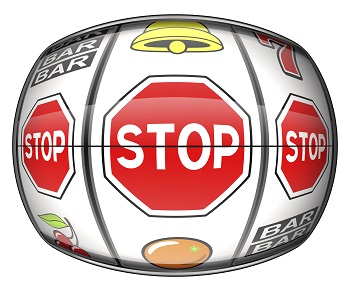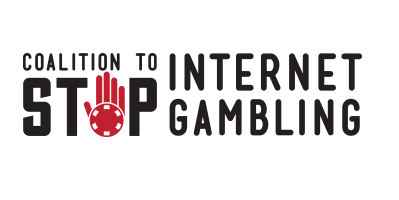What is Gambling Addiction?
 Gambling Addiction or Problem Gambling is defined by the urge to continue gambling despite potentially harmful consequences or a desire to stop. Exactly what causes gambling addiction is not clearly defined, but may be the result of a combination of biological and environmental factors. Compulsive gambling can become a progressively serious issue that has potential to destroy lives.
Gambling Addiction or Problem Gambling is defined by the urge to continue gambling despite potentially harmful consequences or a desire to stop. Exactly what causes gambling addiction is not clearly defined, but may be the result of a combination of biological and environmental factors. Compulsive gambling can become a progressively serious issue that has potential to destroy lives.
According to the National Gambling Impact Study Commission (NGISC) gambling addiction affects approximately 2-5% of Americans. Gambling stimulates the brain’s reward system, similar to the effect of drugs or alcohol addiction, and this can lead to gambling addiction. Gambling is different from many addictions in that it is defined by whether it causes harm to the gambler or others, rather than on the gambler’s behavior. Because of this, problem gambling is not defined as an addiction but an impulse control disorder.
Adolescent and Teen Gambling
Adolescents and teens are not immune to developing a gambling problem. Compulsive gambling often begins in the late teenage years, and progresses through early adulthood as their lives change and become more stressful. When depression and other stresses have the potential to trigger a teen or adolescent to have overwhelming urges to gamble, it is time to seek help.
Signs and Symptoms of Gambling Addiction
Whether it’s buying lottery tickets, visiting casinos, playing slot machines or even online gambling; addiction to gambling in all forms can cause social, financial and even legal consequences. Signs that you may be dealing with gambling addiction may include, but is not limited to:
- having a preoccupation with gambling – feeling you have to chase every bet, planning for your next gambling experience, trying to secure gambling money, etc
- gambling to escape feelings of sadness or other problems
- needing more and more money for gambling to achieve the desired level of enjoyment
- hiding your gambling behavior from loved ones
- accumulating mass amounts of gambling debt
- unsuccessfully trying to stop or cut back on gambling
- resorting to theft, forgery, or fraud to fuel gambling habits
- gambling to escape issues with our daily lives
- taking time off work or other obligations to gamble
- having to borrow money from others to pay bills because it was spent on gambling
Diagnosing Gambling Addiction
The first step to treating gambling addiction is to obtain a proper diagnosis. There are no lab tests, blood tests or x-rays that can detect gambling addiction. Pathway’s mental health professionals will complete a physical and psychological evaluation to determine if a person may have an addiction to gambling.
Gambling Addiction Treatment Utah
Utah gambling addiction is typically treated with cognitive-behavioral therapy which re-trains the brain to think about gambling in a new way. It also teaches gamblers how to deal with their urges and emotions. Financial counseling and self-help interventions may also be important to individuals with gambling addiction.
Outpatient Utah Gambling Addiction Treatment
Utah gambling addiction treatment occurs in an outpatient setting for most. Pathways Real Life Recovery mental health professionals work to find the root of what leads a person to addiction, and then works to build a custom program around the affected individual to establish a strong sense of self-confidence and self-worth, which is important in assisting with treatment. Family therapy done in the comfort of your own home, may also be beneficial.

Utah Gambling Addiction Treatment Center
Pathways Real Life Recovery is conveniently located in Utah, and we help individuals realize that they don’t need the rush of gambling to enjoy life. We believe having fun is essential in treating a gambling addiction. If you or a loved one has expressed concern of gambling addiction, please fill out our contact form or call us at 801-895-3006 to get help now.

